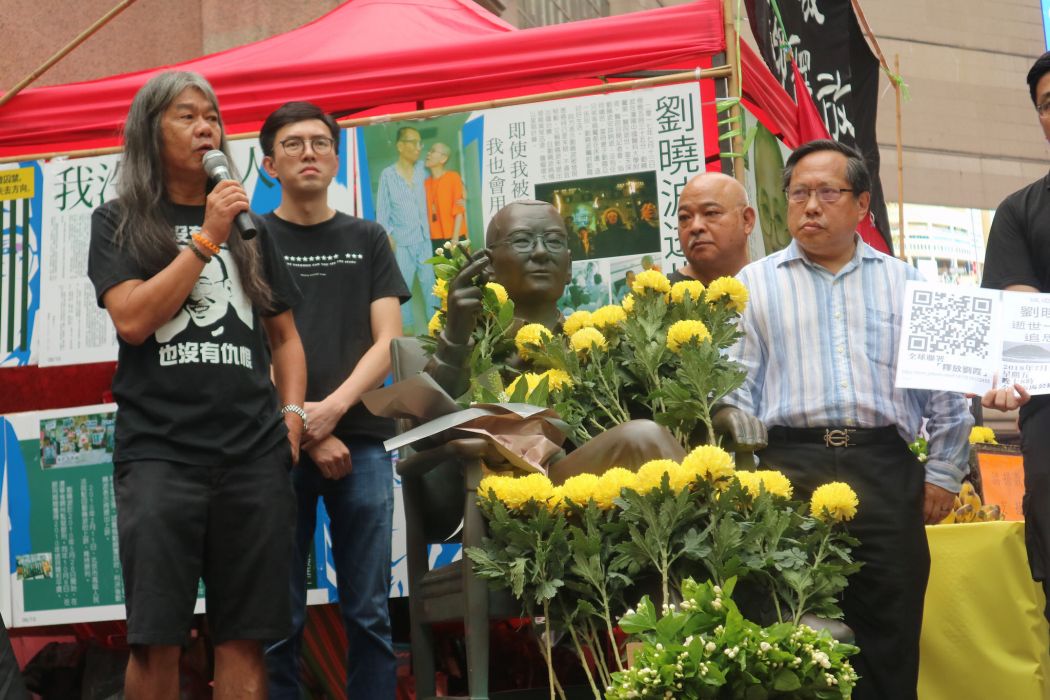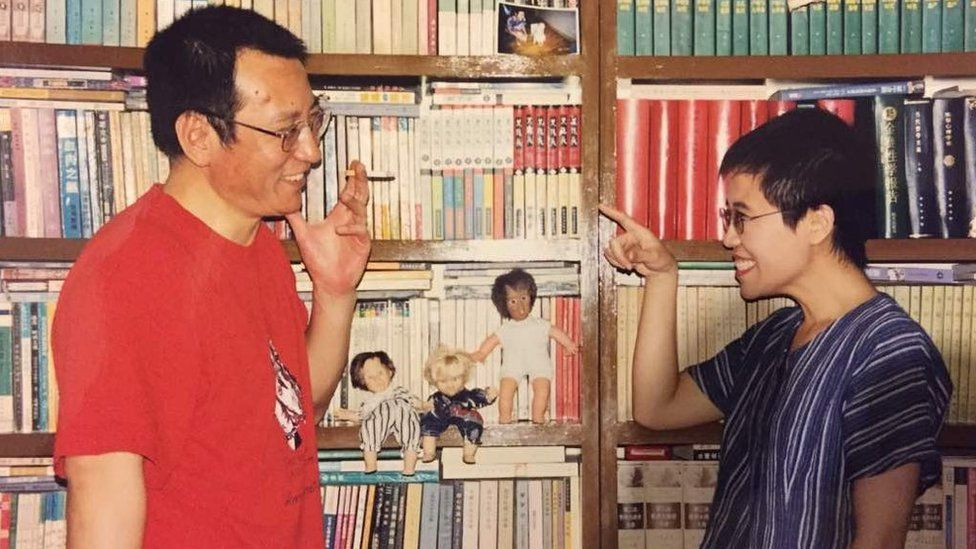Activists in Hong Kong have temporarily erected a bronze statue of the late Chinese dissident Liu Xiaobo to allow members of the public to mourn the Nobel Peace Prize laureate.
Liu Xiaobo died on July 13 last year following a battle with liver cancer while on medical parole. He had been serving an 11-year prison sentence for inciting “subversion of state power” since 2009. Liu was the co-author of Charter ’08, a manifesto calling for democratic reforms in China.
Displayed in a public area at Times Square mall in Causeway Bay, Bull Tsang of the League of Social Democrats said the statue was donated by a person who did not want to be identified publicly.

Members of the Hong Kong Alliance in Support of Patriotic Democratic Movements in China and the League of Social Democrats presented flowers during a short ceremony.
Earlier this month, activists temporarily erected a bust of Liu Xiaobo outside the same mall. A legal letter was sent to the Alliance demanding they remove it.
See also: In Full: Charter 08 – Liu Xiaobo’s pro-democracy manifesto for China that led to his jailing
Alliance Chair Albert Ho said he hoped the management of the mall to be more “humanistic.”
“Allow us to express our thoughts – especially for the millions of those in the mainland who cannot pay tribute for Liu Xiaobo,” Ho said.

Activists have also set up a petition calling upon the Chinese government to release Liu’s widow Liu Xia, who has been under house arrest for some eight years. The petition, which will end on July 11, will be sent to Chinese President Xi Jinping.
Ho said Liu Xia and her brother Liu Hui should be allowed to leave the country, if they were free as the Chinese Ministry of Foreign Affairs often claimed.
The bronze statue will be moved to Tamar Park in Admiralty for a vigil at the anniversary of Liu’s death next month.
